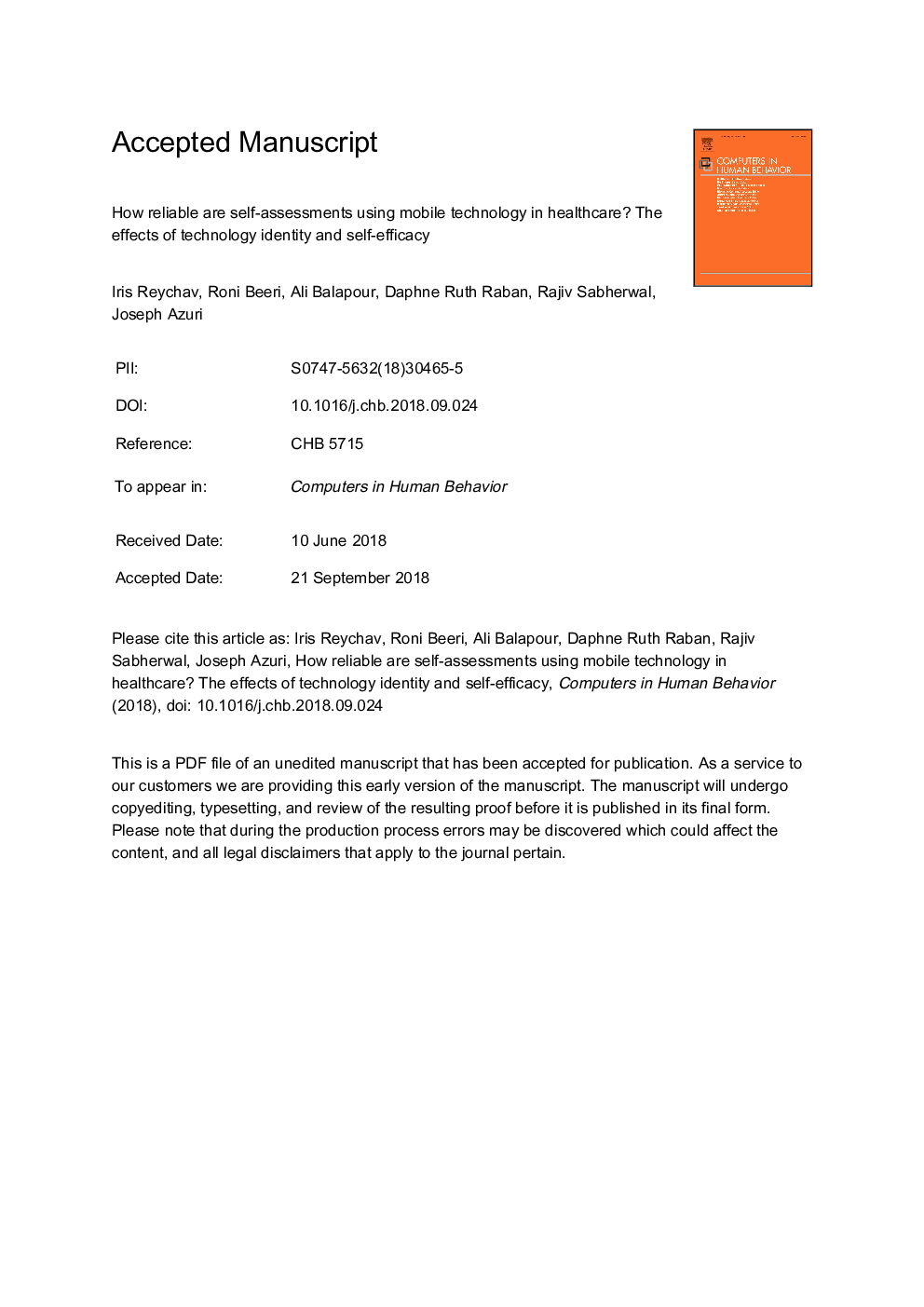| Article ID | Journal | Published Year | Pages | File Type |
|---|---|---|---|---|
| 11024004 | Computers in Human Behavior | 2019 | 32 Pages |
Abstract
Traditionally in clinics or hospitals, it is the staff (physician, nurses, and so forth) who would check the patient's health status (e.g., blood pressure, height, weight, body temperature, and so forth). However, when mobile apps are used as the point of contact between patients and healthcare providers, the self-monitoring of health status will be exposed to biases due to being done by common people. Therefore 'self-report reliability' becomes an essential factor in the mobile healthcare context. Drawing on 'technology identity' and 'technology self-efficacy' literature, we theorized that perceived mobile technology identity directly affects self-report reliability, and perceived self-efficacy moderates the relationship between the two. A sample of patients from a clinic who completed a survey and self-reported their health status using a mobile health app was collected. The results of the analyses suggest that academic education affects the reliability of self-reports. In addition, patients aged 61 and above were more accurate in reporting their health status. Moreover, we found that self-efficacy improves the accuracy of self-reports and moderates the effect of mobile technology identity on self-report reliability. The findings of this paper contribute to the ongoing research around mobile healthcare application use and issues surrounding this phenomenon.
Related Topics
Physical Sciences and Engineering
Computer Science
Computer Science Applications
Authors
Iris Reychav, Roni Beeri, Ali Balapour, Daphne Ruth Raban, Rajiv Sabherwal, Joseph Azuri,
